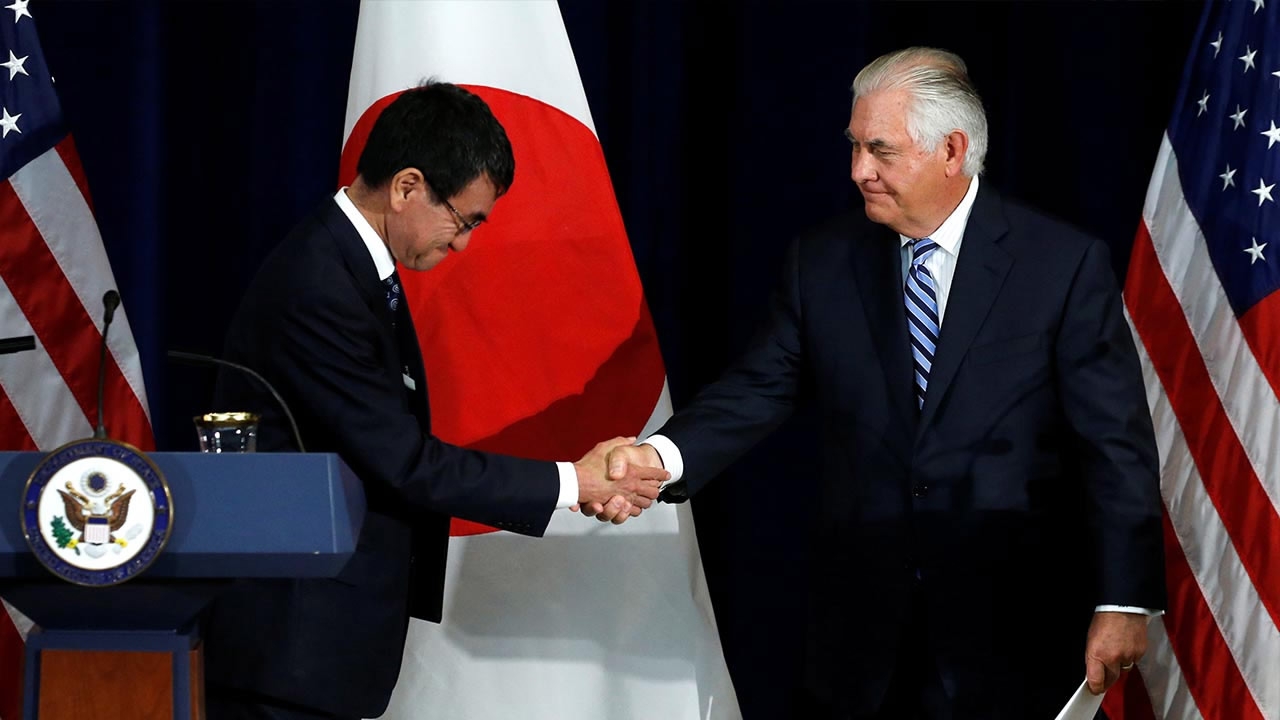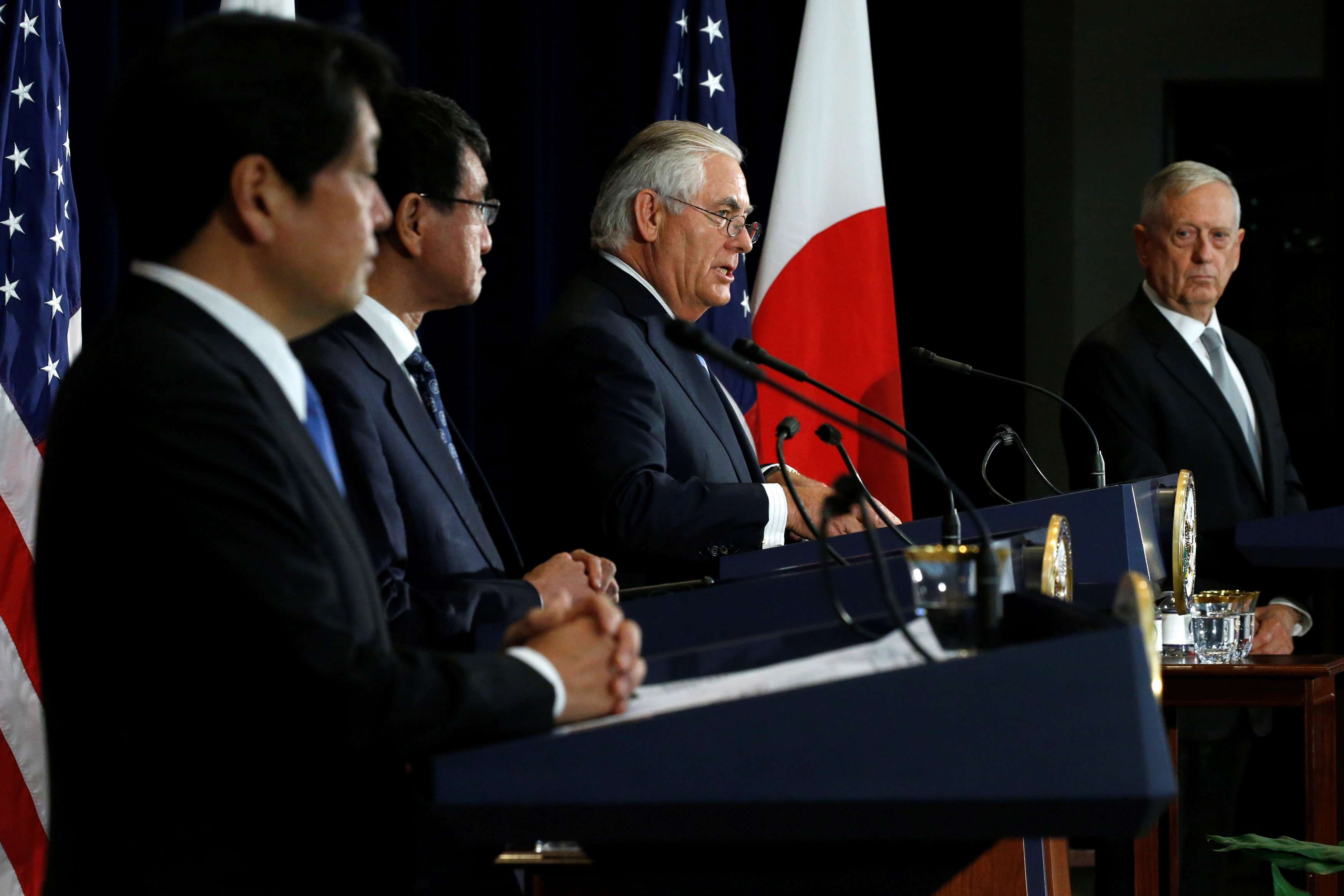
Politics
08:25, 18-Aug-2017
US, Japan step up defense cooperation amid regional tensions
CGTN

The United States and Japan will step up their defense cooperation to deal with the threat from nuclear-armed DPRK as tensions in East Asia remain high, officials from the two allies said on Thursday.
“For this threat of North Korea, at this meeting, we agreed to increase the pressure and to strengthen the alliance capability,” Japanese Defense Minister Itsunori Onodera said after talks with senior US officials in Washington.
US fears about DPRK's missile and nuclear bomb programs have grown in recent weeks. Pyongyang has said it was considering plans to fire missiles toward the US Pacific territory of Guam, although DRPK leader Kim Jong Un appears to have delayed the decision.
US Defense Secretary Jim Mattis, Secretary of State Rex Tillerson and their Japanese counterparts agreed at a meeting in Washington on Thursday to work more closely on the DPRK.
“In light of the threat of North Korea, the four of us confirmed the importance of the unwavering US commitment to extended deterrence,” Onodera said.

(L-R) Japan's Defense Minister Itsunori Onodera, Japan's Foreign Minister Taro Kono, US Secretary of State Rex Tillerson and US Defense Secretary James Mattis hold a news conference after their US-Japan Security talks at the State Department in Washington, US, August 17, 2017. /Reuters Photo
(L-R) Japan's Defense Minister Itsunori Onodera, Japan's Foreign Minister Taro Kono, US Secretary of State Rex Tillerson and US Defense Secretary James Mattis hold a news conference after their US-Japan Security talks at the State Department in Washington, US, August 17, 2017. /Reuters Photo
Tillerson said the United States wanted dialogue with Pyongyang, but only if it were meaningful. “Our effort is to cause them to want to engage in talks but engage in talks with an understanding that these talks will lead to a different conclusion than talks of the past," he said.
In 2005, the DPRK reached an agreement with six countries to suspend its nuclear program in return for diplomatic rewards and energy assistance but the deal later collapsed.
US President Donald Trump warned the DPRK last week it would face "fire and fury" if it threatened the United States, prompting the DPRK to say it was considering plans to fire missiles toward Guam.
Both sides have since dialed back the rhetoric somewhat. Trump has vowed not to allow the DPRK to develop nuclear missiles that could hit the mainland United States but Pyongyang sees its nuclear arsenal as protection against the United States and its partners in Asia.
Japan intends to expand its role in its alliance with Washington "and augment its defense capabilities" while the United States "remains committed to deploying its most advanced capabilities to Japan," the State Department said in a statement.
The Japanese Defense Ministry plans to introduce a land-based Aegis missile defense system to address the DPRK's missile threats and decided to seek funding in the next fiscal year to cover the system design costs, Japan's Kyodo news agency said, citing a government source.
Source(s): Reuters

SITEMAP
Copyright © 2018 CGTN. Beijing ICP prepared NO.16065310-3
Copyright © 2018 CGTN. Beijing ICP prepared NO.16065310-3